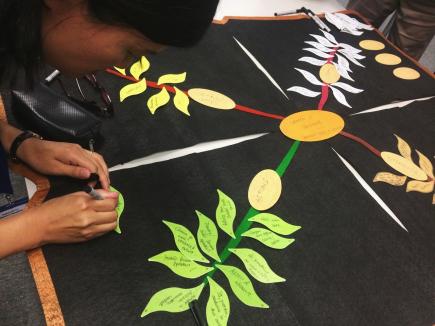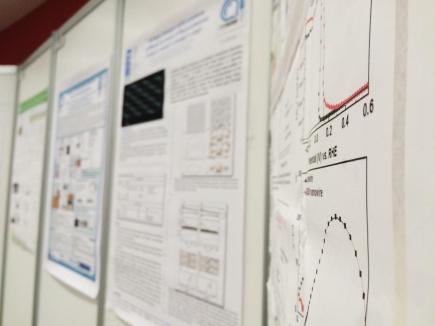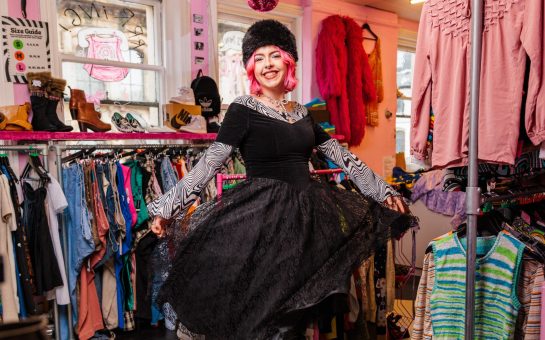David Cameron pledged this week to ‘end the gender pay gap in a generation’, by forcing large firms to disclose the average salaries of their male and female employees by 2016.
His announcement came 157 years to the day since the birth of Manchester’s suffragette Emmeline Pankhurst.
In it the prime minister said: “When my daughters Nancy and Florence start work, I want them to look back at the gender pay gap in the same way we look back at women not voting and not working – as something outdated and wrong that we overcame together.”
What if, however, the prime minister’s daughters decide to pursue a career in science?
The new government rules come as a response to a persistent discrepancy between male and female wages in the UK, which currently stands at 19.1 per cent – and one area where the gap is most noticeable is within scientific research.
Figures in a recent Sunday Times report revealed that, for a professorship in science, women get paid an average of £5,000 less than men – the figure rising to as much as £21,000 in some institutions.
In addition, women currently make up just 13% of employees involved in careers in Science, Technology, Engineering, Mathematics and Medicine (STEMM).

STEMM THE INEQUALITY: Women only make up 13% of Science, Technology, Engineering, Mathematics and Medicine industries
The situation becomes a catch-22, as many girls and young women are discouraged from pursuing scientific careers and hence the figures show no sign of changing.
A Freedom of Information request highlighted that even at the University of Manchester, an institution widely championed for its efforts to ensure and promote gender equality, yearly undergraduate admissions over the last five years of female students across all science subjects are consistently lower than their male counterparts.
It was also suggested in a Financial Times report in March this year that teenage girls’ perceptions of inferiority to male peers in science and maths directly impact the pay gap in careers in the industry.
Last month, Manchester played host to Graphene Week 2015, an annual conference dedicated to the science and applications of the 2D ‘wonder-material’.
Organised by Graphene Flagship, the EU’s biggest ever research initiative, and whose mission promotes equality, this year’s event saw the launch of Women in Graphene, a support network specifically for women in the industry.
Hosted by Katarina Boustedt, Graphene Flagship administrator, and professor at Chalmers University of Techology, Sweden, the fringe meeting was intended to open up the discussion of gender-specific obstacles to women and girls progressing in science, and what might need to be done to overcome them.
Katarina’s mission is about supporting women working in 2D materials and research, but many of the points raised have much further reaching application.
“This is not about lowering standards,” she said. “We are talking about half of the world’s brains. We cannot afford to just neglect that.”
Mar Garcia Hernandez, Madrid National Research Council Professor of Experimental Condensed Matter Physics and Flagship Graphene contributor, said: “We launched this action because we have to increase the visibility of women in science.
“We make up half of society, and we can not just avoid the presence of women in areas such as Physics, which are traditionally hard to get into.”
Many felt that too often, women in the industry are met with a perceived lack of gravitas, lack of visibility, and as a result struggle to progress professionally.
The above perceptions are exacerbated by a deep-rooted apathy towards the issue, or met with limp justifications of men historically progressing to higher professional levels, corresponding to their ‘length of service’ within an institution.
This argument seems somewhat futile, as very often women have less opportunity to stay within their roles once in them – particularly when it comes to motherhood.
On this topic, Mar told MM: “I have never heard that a male chair has not reached a certain position because he was suffering from Hepatitis or some other illness for a year, but we are continuously being told that we are unable to get certain positions because we got pregnant for nine months and had a child.
“Having children is a social consequence, yet that is the very reasoning why women cannot progress to higher positions.
“It cannot be sustainable, this kind of reasoning.”
What it comes down to, it seems, is that more should be done within the industry support and mentor women in their careers, and accept and embrace childhood as a social consequence and not a ‘lifestyle choice’.
This is something that the University of Manchester are seemingly dedicated to changing – and quite right too, as Manchester is not short of exceptional female scientists.
Take, for example, Manchester University’s Tracy Biggs, who, last year, won the prestigious L’Oréal-UNESCO UK & Ireland For Women in Science Fellowship for her research into single gene disorders.
Dr Helen Ryder, Charter Marks and Athena SWAN Coordinator at the University of Manchester, said: “If you are an academic who has been on maternity leave, when you return you will be relieved of your administrative duties and your teaching duties for six months, to help your research get on track.
“That is something that we do in Manchester to support the progression and retention of women because we do not want to lose the people that we have, and we also don’t want to make an environment you can’t return to.”

PROGRESSION AND RETENTION: The Athena SWAN Charter helps women return to STEMM careers after maternity leave
The Athena SWAN Charter is a national charter committed to advancing the careers of women in STEMM employment, higher education and research.
The University of Manchester has held a Bronze Award since 2008, and all of the 15 STEMM Schools in the University hold Athena SWAN Awards.
Helen said: “The University of Manchester has three core goals: world-class research, outstanding student experience and social responsibility.
“All of these goals are underpinned by our commitment to equality of opportunity – and the Athena SWAN Charter allows helping us to create an equitable workplace.
“Embedding a real culture change takes both time and commitment.
“We are delighted all our STEM Schools hold Athena SWAN Awards and these awards demonstrate that the University of Manchester is a national leader in promoting gender equality in employment.
“The Athena SWAN Charter has, and will continue to have, a positive impact on changing the culture and attitudes across our institution.”
Main image courtesy of Intel Free Press, with thanks.



